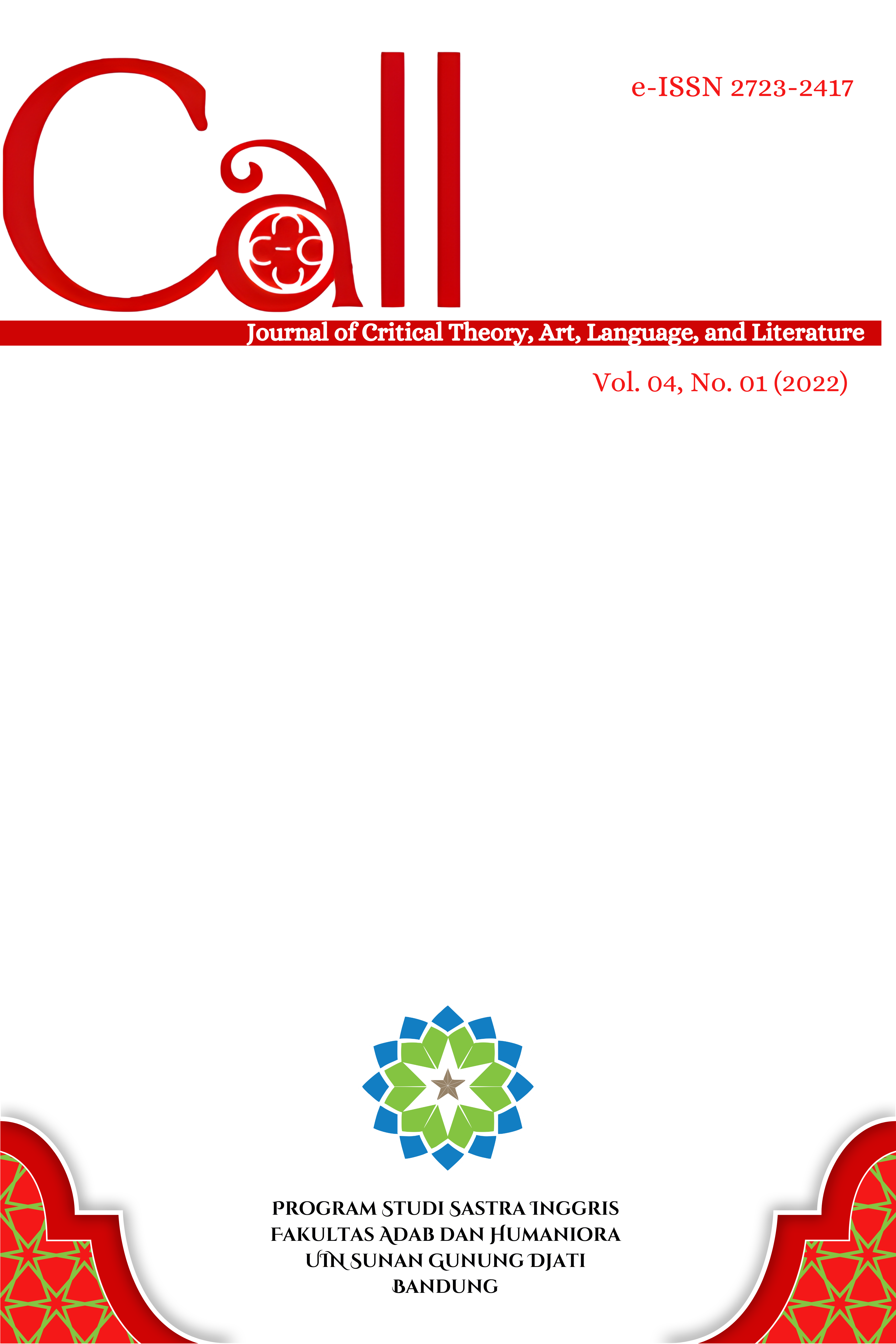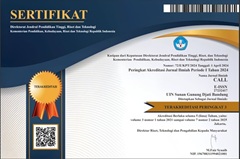SOCIAL COGNITION ELEMENTS OF CRITICAL DISCOURSE ANALYSIS IN BARACK OBAMA’S SPEECH AT THE DEMOCRATIC NATIONAL CONVENTION 2020
DOI:
https://doi.org/10.15575/call.v4i1.15414Abstract
This paper employs one strand of Critical Discourse Analysis as a framework to discuss a discourse of political figures. It is a speech delivered by Barack Obama with regard to the issue of 46th president election in 2020 between Trump and Biden. That approach is van Dijk’s (1993) social cognition theory that is focused on the elements of social cognition contained in the speech. In line with Memon, et al. (2014) findings on analyzing Benazir Bhutto’s last speech, there are nine elements of social cognition. Meanwhile, the findings of current study show that there are three social cognition elements in the speech. They are social attachment, mind control, and glorification. In conclusion, social cognition can explore mental awareness of the scenario writer which then forms the text.
Â
Keywords: critical discourse analysis, social cognition, speech
References
Abdullah, F. S. (2017). Speech communication (Dissertation). Al Zahra College for Women, Oman.
Ardiansyah, E.A. (2020). Critical discourse analysis on a Text “friday prayer at home for most but some risk infection at mosques†by the al jazeera English, Al-Tsaqafa : Jurnal Ilmiah Peradaban Islam, 17(1), 58–66.
Berger, P. L., & Luckmann, T. (1966). The social construction of reality. New York, USA: Penguin Books.
Bouvier, G., & Machin, D. (2018). Critical discourse analysis and the challenges and opportunities of social media. Review of Communication, 18 (3), 178–192.
Eriyanto. (2017). Analisis wacana : pengantar analisa teks media. Yogyakarta, Indonesia: LKIS.
Language and Linguistics (vol. 5), ed . by Keith Brown, 32–8. Boston: Elsevier.
Fairclough, I and Fairclough, N. (2012). Political discourse analysis. London, UK: Routledge.
Persada, I., & Syahrudin, J (2018). A critical discourse analysis of Indonesia presidential election in 2014 giving speeches in campaign debate. English Language & Literature, 7 (3), 1-20.
Sarah, H. (2019). Critical discourse analysis in donald trump’s speeches (Thesis). State Islamic The University Sulthan Thaha Saifuddin, Jambi, Indonesia.
Semium, Y. (2006). Teori kepribadian dan terapi psikoanalitik freud. Yogyakarta, Indonesia: Kanisius.
Sipra, M.A., & Rashid, A. (2013). Critical Discourse Analysis of Martin Luther King’s Speech in Socio-Political Perspective. Advances in Language and Literary Studies, 4 (1), 26–33.
van Dijk, T. A. (1993). Discourse and society. London, UK: Sage Publication.
van Dijk, T.A. (2015). Critical discourse studies; a sociocognitive approach. In Ruth Wodak & Michael Meyer (Eds.), Methods of critical discourse analysis. (3th ed). London, UK: Sage.
Widiastuti, N.P.S. (2020). A critical discourse analysis of Mohamad Nasir’s speech. BAHTERA: Jurnal Pendidikan Bahasa dan Sastra, 19(2), 251–282.
Memon, N. et al (2014). Critical Analysis of Political Discourse: A Study of Benazir Bhutto’s Last Speech. Balochistan Journal of Linguistics, 2(1): 72-87.
Downloads
Published
Issue
Section
Citation Check
License
Authors who publish in CALL agree to the following terms:
- Authors retain copyright and grant the journal right of first publication with the work simultaneously licensed under Attribution-ShareAlike 4.0 International (CC BY-SA 4.0) License that allows others to share the work with an acknowledgment of the work's authorship and initial publication in this journal.
- Authors are able to enter into separate, additional contractual arrangements for the non-exclusive distribution of the journal's published version of the work (e.g., post it to an institutional repository or publish it in a book), with an acknowledgment of its initial publication in this journal.
- Authors are permitted and encouraged to post their work online (e.g., in institutional repositories or on their website) prior to and during the submission process, as it can lead to productive exchanges, as well as earlier and greater citation of published work (See The Effect of Open Access).




